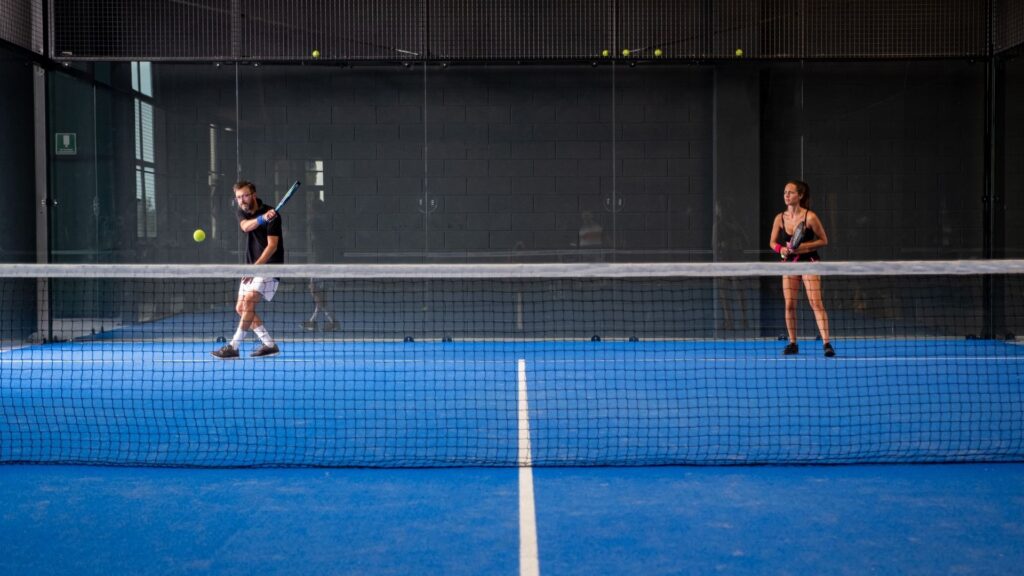Padel, a fast-paced racket sport combining elements of tennis and squash, is rapidly gaining popularity worldwide. While its physical benefits—like improved cardiovascular fitness, agility, and strength—are well known, its impact on mental health and emotions is equally significant yet less discussed. This article dives deep into how playing padel affects your emotional well-being and why it’s more than just a physical workout.
The Emotional Highs and Lows of Padel
The Thrill of Competition
Padel is inherently competitive, whether you’re playing casually with friends or competing in tournaments. The excitement of scoring a point, the tension of a tie-break, and the euphoria of winning trigger the release of dopamine, the “feel-good” neurotransmitter. This rush of dopamine enhances your mood, motivation, and overall sense of well-being.
The Frustration of Mistakes
However, the emotional impact isn’t always positive. Missing an easy shot or losing a match can lead to frustration, self-doubt, and even anger. These emotional lows are normal in competitive sports but can be managed with the right mindset and emotional resilience techniques.
Stress Relief and Mental Clarity
Endorphin Release
Like other forms of exercise, padel stimulates the release of endorphins—natural mood elevators that reduce stress and anxiety. After an intense game, players often experience a “runner’s high,” feeling relaxed and content.
Mindfulness in Motion
Padel demands complete focus and quick decision-making, pulling you into a state of “flow.” This mindfulness in motion helps distract from daily worries and negative thoughts, providing mental clarity and emotional relief.
Social Connections and Emotional Support
Building Friendships
Padel is typically played in doubles, promoting social interaction and teamwork. Regular participation fosters camaraderie, leading to strong social bonds and a sense of community, which are essential for emotional well-being.
Support and Encouragement
Having teammates and opponents who cheer you on or empathize with your losses creates a support network. This emotional support system is particularly beneficial for combating feelings of loneliness or stress.
Boosting Self-Esteem and Confidence
Achievement and Progress
Learning new skills, improving performance, and winning matches provide a sense of accomplishment. This boosts self-esteem and confidence, encouraging a positive self-image.
Resilience and Adaptability
Padel teaches resilience. Losing a point or a match challenges you to adapt, strategize, and improve. Over time, this builds emotional strength and the ability to cope with setbacks, both on and off the court.
Managing Negative Emotions
Handling Anxiety and Pressure
Competitive padel can induce performance anxiety, especially during high-stakes matches. This is a double-edged sword: while mild anxiety can enhance focus and performance, excessive anxiety can hinder it.
Dealing with Anger and Frustration
Mistakes and losses can trigger anger or frustration. Learning to manage these emotions is crucial for maintaining a positive experience. Techniques like controlled breathing, strategic timeouts, and positive self-talk can help regulate emotional responses.
Tips for Managing Anger in Padel
Controlled Breathing
When you feel anger rising, practice controlled breathing:
- Inhale slowly through your nose for 4 seconds.
- Hold your breath for 4 seconds.
- Exhale slowly through your mouth for 6 seconds. This activates the parasympathetic nervous system, helping you calm down.
Take a Timeout
Don’t hesitate to take a short break between points to regain composure. Walk to the back of the court, sip water, or towel off to create a mental pause.
Positive Self-Talk
Replace negative thoughts with constructive self-talk. For example:
- Instead of “I always mess up,” think “Everyone makes mistakes. I’ll get the next point.”
- Focus on what you can control, such as your effort and attitude, rather than the outcome.
Reframe the Situation
Shift your perspective by viewing mistakes as learning opportunities. Every lost point is a chance to adapt and improve.
Body Language Reset
How you carry yourself affects how you feel. Stand tall, relax your shoulders, and maintain a calm expression. This nonverbal cue helps reset your emotional state.
Use Visualization
Visualize yourself playing calmly and confidently. This mental rehearsal prepares your mind to respond positively in stressful situations.
Channel Anger into Performance
Redirect your anger into focused energy. Use it as motivation to play more strategically and aggressively, but in a controlled manner.
Accept Imperfection
No one plays perfectly every time. Accepting this fact helps reduce frustration and prevents anger from escalating.
Padel as a Therapeutic Tool
Coping with Stress and Anxiety
Padel can be an effective coping mechanism for stress and anxiety. The physical activity combined with social interaction and emotional support creates a therapeutic environment.
Enhancing Emotional Intelligence
Playing padel enhances emotional intelligence by teaching players to recognize, understand, and manage their emotions and those of others. This skill is invaluable not just in sports but in daily life and personal relationships.
Tips for Emotional Well-Being in Padel
- Practice Mindfulness: Focus on the present moment to enhance performance and reduce anxiety.
- Positive Self-Talk: Replace negative thoughts with positive affirmations.
- Emotional Regulation Techniques: Use deep breathing and visualization to manage stress.
- Social Interaction: Engage with teammates and opponents positively to build emotional support networks.
- Reflect and Learn: After each game, reflect on emotional highs and lows to understand and improve emotional responses.
Conclusion: The Emotional Power of Padel
Padel is more than just a physical sport; it is a powerful emotional experience. It has the ability to elevate your mood, reduce stress, build resilience, and enhance emotional intelligence. Whether you’re celebrating a hard-fought victory or learning from a tough loss, the emotional journey is as rewarding as the physical one.
By understanding and embracing the emotional aspects of padel, you can enrich your playing experience and, ultimately, improve your mental well-being. So next time you step on the padel court, remember: you’re not just playing a game—you’re nurturing your emotional health.
Ready to Play?
Next time you grab your racket, consider how padel impacts your emotions. Embrace the highs, learn from the lows, and keep playing—both for your body and your mind.

